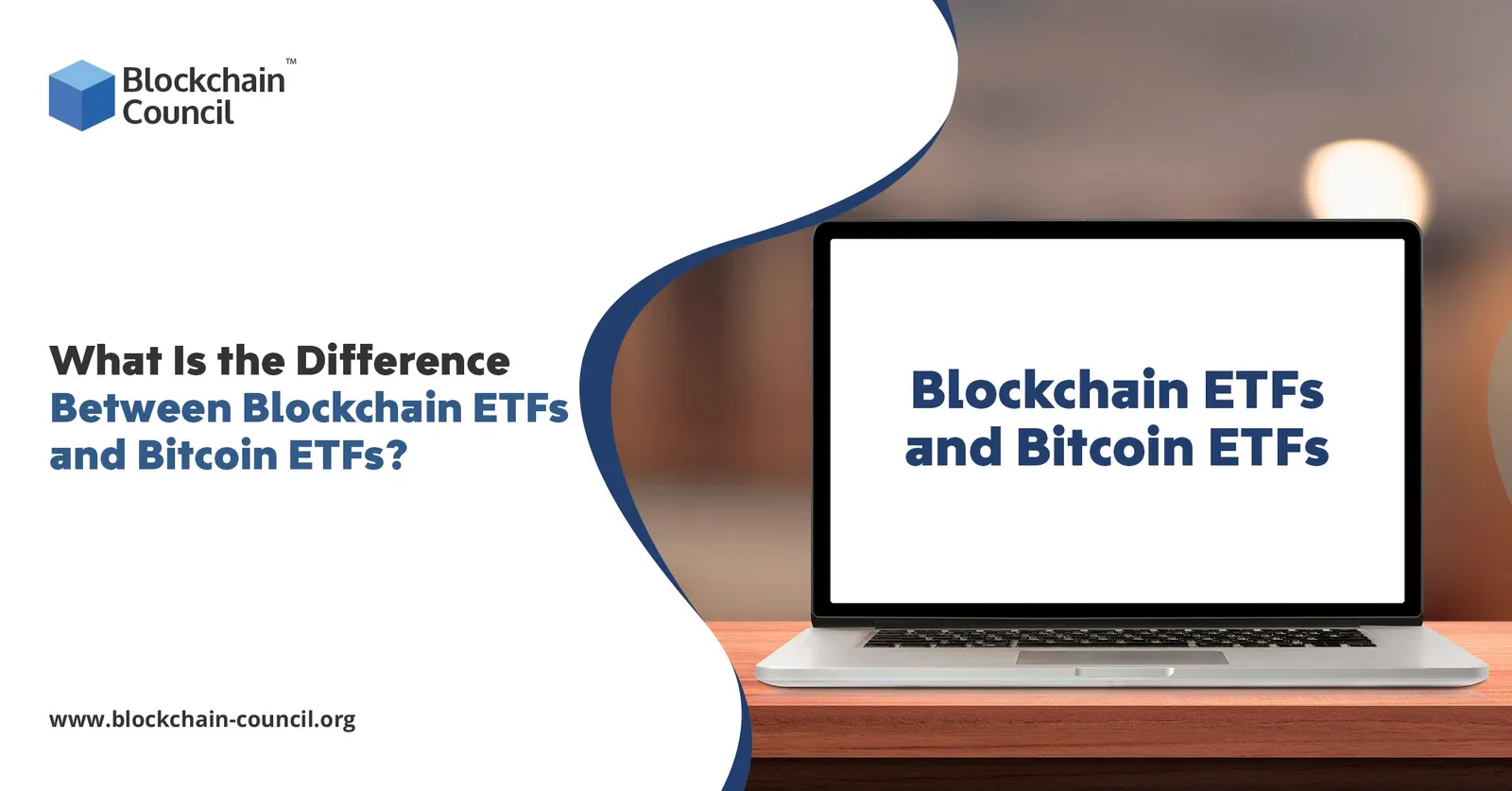What Is the Difference Between Blockchain ETFs and Bitcoin ETFs?
Despite the fact that bitcoin is gaining popularity among investors, Bitcoin ETFs are still a phantom. In the meantime, blockchain ETFs have been introduced to the mainstream markets. In mass media and news stories, the terms bitcoin and blockchain are frequently used interchangeably. As a result, many investors mistakenly believe that blockchain and bitcoin ETFs are the same.
Before deciding the instruments to monitor, it’s critical to understand the distinctions between bitcoin ETFs and blockchain ETFs. Bitcoin is a digital currency, and blockchain is the technology that makes it possible. Differentiation becomes even more important when it comes to investment securities.
Despite the fact that bitcoin futures are already accessible on the country’s two largest exchanges, the cryptocurrency’s legal status in a number of jurisdictions is still unclear. It is embroiled in a number of regulatory battles and is being investigated for facilitating criminal activities such as money laundering.
Four blockchain ETFs are currently available in regulated markets. The four were released in 2018 with a total asset under administration of $278 million. Their cost-to-income ratios vary between 0.70 and 0.65%.
According to a Wall Street Journal post, investors put $180 million into blockchain ETFs in the first two weeks after their launch. After October 2017, these ETFs have seen higher trading volumes than similar instruments.
What Are the Differences Between Bitcoin ETFs and Blockchain ETFs?
ETFs that monitor the stock market prices of companies that have invested in blockchain technology are known as blockchain ETFs. Blockchain is a technology, not a company or a commodity.
The world of blockchain investing is enormous, and it is not restricted to a single sector. IBM and Maersk, for example, have teamed up to bring blockchain to the shipping industry. Overstock has made blockchain investments as well, through its Medici Ventures and zero digital coin exchange. Unsurprisingly, blockchain ETFs are fond of these businesses. The Amplify Transformational Data Sharing ETF (BLOK) and Reality Shares Nasdaq NexGen Economy (BLCN) ETFs from Amplify ETFs have both mentioned their companies.
The majority of bitcoin ETF applications submitted to the SEC proposed using Cboe and CME futures contracts to monitor bitcoin’s price. In this model, ETFs own futures contracts that keep track of the price of bitcoin.
The ETF proposals were rejected by the SEC due to “liquidity and valuation” concerns. The exchange rate and liquidity of Bitcoin futures contracts are currently low. As a result, instead of leading, futures markets follow the erratic spot exchange rates.
In their current form, blockchain ETFs pose a lower risk than bitcoin ETFs. This is due to the fact that they are immune to the wild price swings of bitcoin.
Wrapping Up
Due to the fact that blockchain is a relatively new technology, there is currently little demand for it. As a result, the ETF’s stock price is more susceptible to factors that have little to do with or affect blockchain technology. Before bitcoin ETFs are implemented, regulatory decisions on bitcoin and cryptocurrencies would have a big effect.
Once you’ve figured out how to learn Blockchain technology, the next move is to find out how to use it. Since they are both short-term and versatile, blockchain certification courses are a popular choice. The blockchain councils’ certified blockchain training programme, which has been curated by blockchain experts, focuses on the skills and experience you’ll need to get a job, and it’s all bundled into a portable learning module that suits your schedule.
#blockchain technology #blockchain professionals #blockchain platform #blockchain expert
